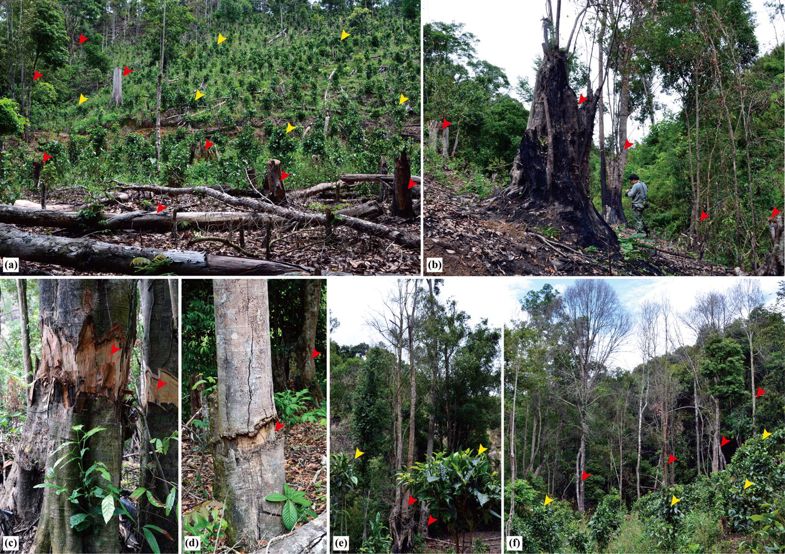
Plant species are of considerable concern to biologists and conservationists in biodiversity research and conservation planning.
During the field survey in 2016, researchers from Xishuangbanna Tropical Botanical Garden (XTBG) found a population of the primitive fagaceous species, Trigonobalanus verticillata in the Xishuangbanna tropical rainforest.
The total number of adult individuals of T. verticillata were about 200. However, they found the adult plants of T. verticillata had fallen to about 30 individuals in their second field survey in 2017. The species now faces extinction in the region due to the expansion of the tea cultivation.
This raised the question what appropriate conservation strategies can be developed to ensure the balance of economic growth and biodiversity conservation.
"The impacts of economic development on rare plants and their habitats, particularly where rare species are disappearing almost as they are discovered, need to be recognized and addressed before these potential resources are lost forever", said Prof. LI Jie, principal investigator of the study.
Integrating conservation assessments of the rare plants in tropical China and the experience in biodiversity conservation, XTBG researchers proposed three approaches to increase public awareness of biodiversity protection and conservation.
They suggest that the combination of ex situ conservation on "safe sites", a well-managed system of protected areas for in situ conservation and in-depth surveys to identify species and habitats in need of management, are necessary to protect rare and endangered plants.
The study entitled "Conflict between biodiversity conservation and economic growth: insight into rare plants in tropical China" has been published online in Biodiversity and Conservation.

Trigonobalanus verticillata is growing in a tea garden where the natural habitat has been severely destroyed by the recent boom in the tea trade. (Image by XTBG)

86-10-68597521 (day)
86-10-68597289 (night)

86-10-68511095 (day)
86-10-68512458 (night)

cas_en@cas.cn

52 Sanlihe Rd., Xicheng District,
Beijing, China (100864)

